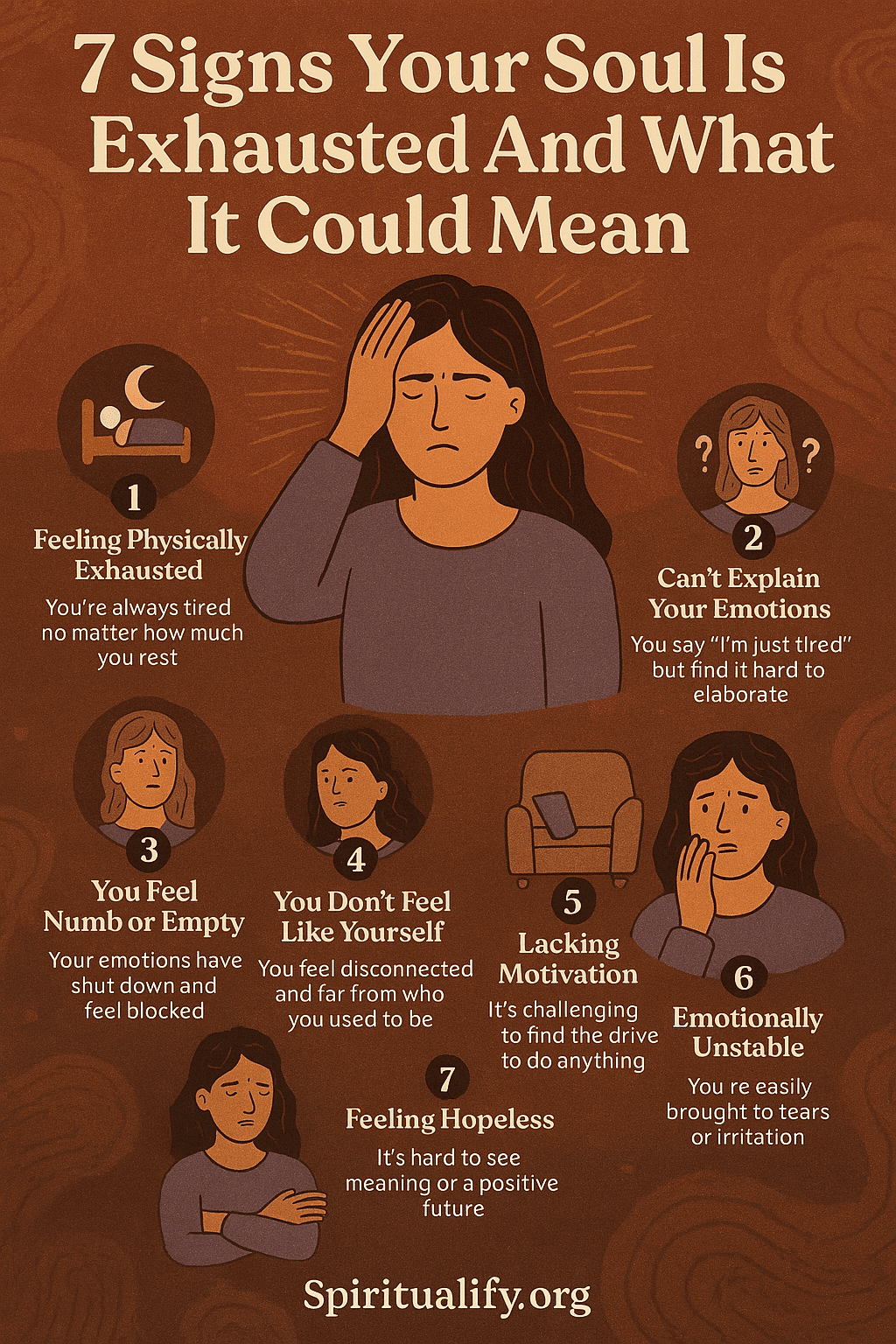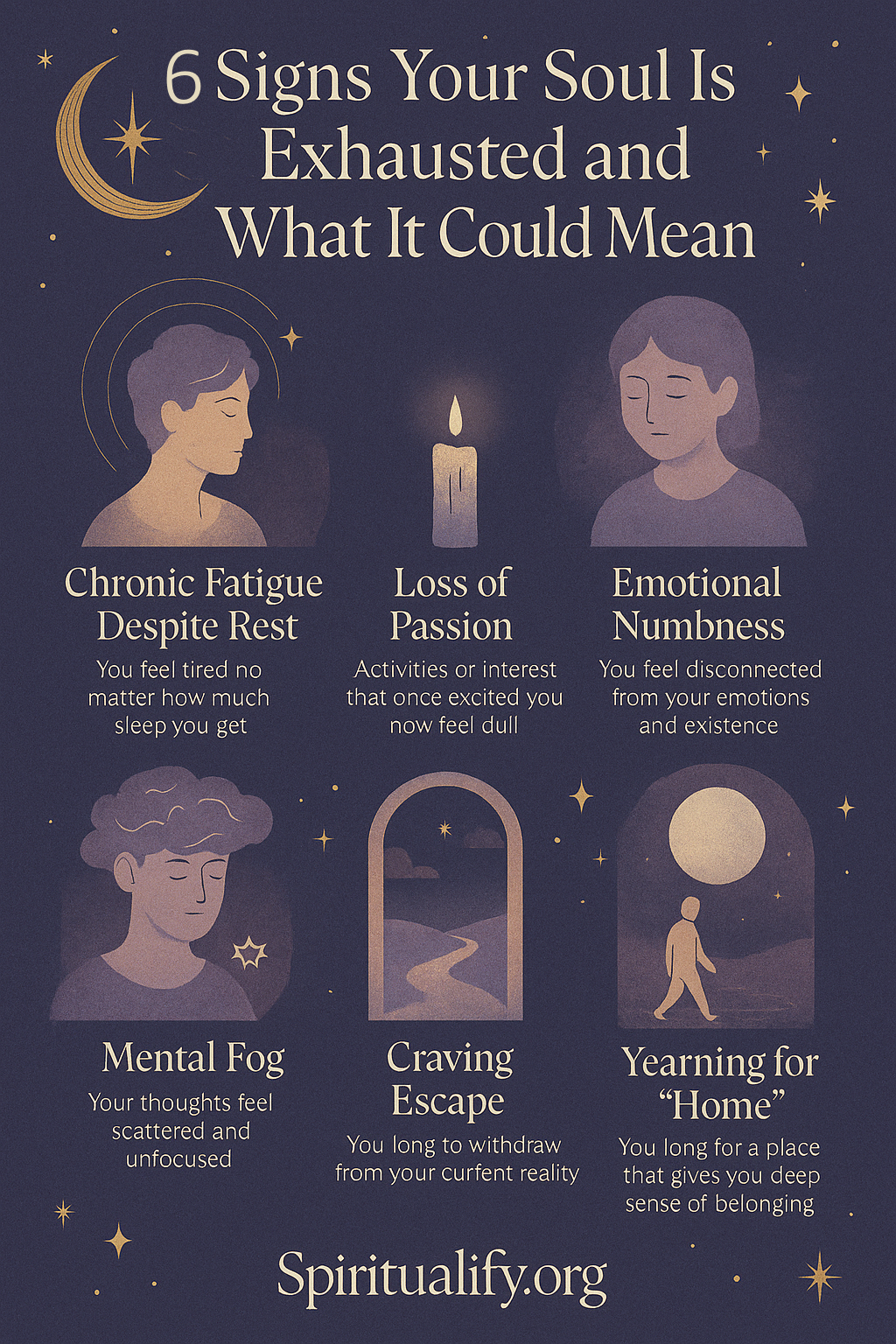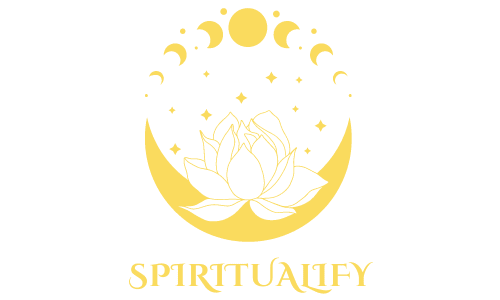When you are going through a challenging time in your life, you will frequently feel the physical consequences of it as well.
You might feel as though you're just kind of dragging yourself through life, whether it's because of pain, fatigue, or both.
You have been through a lot, and your spirit is worn out as a result, this is what we mean when we talk about soul exhaustion.
This is how it feels when your soul is exhausted, and this is what you can do about it:
1. You feel physically exhausted

Physical exhaustion is frequently the manifestation of emotional exhaustion. When life is difficult, it can take a lot more effort to get ready for the day or even just to go to work with a smile on your face.
Often, you will get more sleep, meaning that you will go to bed earlier, get up later, and possibly take naps throughout the day. Despite this, you find that you are still exhausted.
On other occasions, you might recognize that you are tired but be unable to switch off your brain in order to fall asleep. This will also have an effect on the amount of energy you have available throughout the day.
Please keep in mind that experiencing both physical and emotional exhaustion as a result of emotional distress can be a sign of clinical depression. You ought to look for assistance from a trained professional if this problem continues for a significant amount of time.
2. You can't explain your emotions

Attempting to articulate how one is feeling during challenging times is one of the most challenging aspects of going through these times.
When your soul is drained, it may feel impossible to find the appropriate words to describe how you are currently experiencing life.
It's difficult to give an answer when someone asks you how you're feeling. Are you angry? Sad? Frustrated? You'll most likely respond with something along the lines of “I don't know, I'm just tired.”
You can always seek the assistance of a trained professional or therapist if you need assistance articulating your emotions. You will then be able to work through them together from that point on.
3. You feel numb or empty

After the initial waves of intense emotion and feelings of grief, you might find that you become numb. You are unable to escape this empty, emotionless space, and as a result, you are experiencing a lack of emotion.
You might be able to temporarily block some of your negative feelings but at the cost of being unable to experience happiness and joy.
4. You can't laugh anymore

Do you recall the most recent time you laughed out loud? Possibly a chuckle here and there during your favorite show, or perhaps a long, hearty belly laugh shared with good friends, the kind that makes your stomach ache.
It has probably been a while if the energy in your soul is exhausted. It may feel impossible to laugh, or at the very least, it may take a lot of effort to pretend to laugh.
It's natural to feel this way right after a traumatic event, but if it continues for a few months after that, it could be an indication of a more serious problem.

5. You don't feel like yourself

When your soul is exhausted you will not be able to recognize who you are when you look in the mirror. When you look at old photos or videos of yourself, the smiling and laughing person you once were feels like a person from another era.
The fact of the matter is that loss, trauma, and other difficulties in life can change a person. Nevertheless, this does not imply that they have a detrimental effect.
There will be a period of time during which you will feel like a stranger, like your life is lacking something important or that you no longer recognize who you are.
You will, however, emerge from this experience more powerful than you were before, and your heart and soul will begin to heal as time passes.
If you find yourself in this situation, it is a good reason to look for help from a qualified professional. There is a common misconception that only people with severe mental illnesses should see therapists.
They are available to anyone who is struggling with issues of a personal nature and looking for help in resolving those issues.
6. You lack motivation

When we maintain a positive frame of mind, we can also feel motivated. When we are confronted with challenges, such as the end of a relationship, the death of a loved one, or the loss of a job, our motivation can almost completely evaporate.
If your soul, the component of you that makes you the vibrant human being that you are, is worn out, it may feel as though it is physically impossible for you to do any activity.
You may be lacking motivation at work, around the house, or with your personal hygiene. Alternatively, it could be that you've lost interest in the activities that you used to enjoy doing.
When your soul is exhausted, it may be difficult for you to get out of bed, and you may find it more appealing to stay in bed rather than get up and mindlessly scroll through social media.
7. You feel physical pain and discomfort

Pain and discomfort in your body are often the outward signs of an exhausted soul. You might have issues with the following things:
- Physical pain and discomfort
- Blurred vision
- Stomach and digestive problems
- Headaches with tension
- Ringing in the ear
- Dizziness
It goes without saying that you should consult a medical professional if any of these symptoms continue for an extended period of time.
8. You feel disoriented

When your soul is exhausted, you may often have the impression that you are moving through life in a daze.
You are simply going through the motion, frequently employing some form of autopilot while your thoughts are elsewhere. After everything is said and done, you have no idea what you did or how you arrived at this point.
9. You feel unstable

Especially in the beginning, you'll feel like you're tiptoeing around your own emotions. Even when you're having a “good” day, you know that anything could go wrong at any second, and you could end up crying for no apparent reason at all.
You can be thrown off balance by something as simple as a song, a place, or a smell. Even the smallest of annoyances could cause you to become angry and frustrated.
Your ability to overcome challenges has essentially reached rock bottom at this point. Unfortunately, this can often be taken out on the people around us who are just trying to help.
You might lash out or pull away from people.
10. It seems as if you are all alone

You are very lonely, despite being in a room full of other people. You have the impression that you are the only one in the world who is experiencing what you're going through, and that everyone else around you is living their lives to the fullest.
You have the impression that no one could possibly love you, that you have no value, and that even though other people appreciate you, at the end of the day, you are not anyone's “first choice.”
From your point of view, everyone else seems to be doing well, and you might be experiencing feelings of jealousy as a result.
This prevents you from being genuinely happy for people like your friend who just had a baby, your coworker who just got engaged, or your brother or sister who just got promoted.
When you consider all that they have accomplished, you wonder, “What is wrong with me? Why not me?” While your life feels like chaos, everyone else's seems like a storybook.

11. You suffer from anxiety and panic attacks

To reiterate, it is strongly recommended that you seek professional assistance if you suffer from both chronic anxiety and constant panic attacks.
The stress after trauma can lead to anxiety and panic attacks. Maybe you're petrified of the future, which used to appear to be well-defined but now appears to be vague and undetermined.
If you are experiencing these symptoms for any reason, a trained professional can assist you in developing a specialized strategy that will enable you to get rid of them.
12. You take medication

Self-medication can take many forms, including excessive use of painkillers or other medications, heavy drinking or smoking, or the use of other substances that are illegal.
You may engage in more risky behavior or do things you wouldn't normally do. Self-medication and other risky behaviors can be harmful, especially if you don't worry about the outcome.
This is a potentially life-threatening circumstance that may result in the intentional infliction of harm upon oneself, and it is imperative that a mental health professional be consulted as soon as possible.
13. You hold on to toxic people in your life

A loss or trauma to keep you in unhealthy relationships. Perhaps this person is history that you just can't let go of, or that you're simply afraid to let go of because the future holds so much mystery for you.
Unfortunately, if you maintain these relationships with the people closest to you, whether they be parents, friends, or romantic partners, you will remain in the same place.
You may find it easier to get through the challenging process of removing that person from your life if you have the support of close friends and family, as well as professionals.
14. You withdraw and want to be alone all the time

When it seems as though it is physically impossible to feel happy, we often isolate ourselves because we have the impression that everyone we spend time with finds us to be a significant burden.
You find yourself coming up with reasons not to go out or meet people because you perceive those activities to be stressful, and you don't want your mood to cause negativity on others.
15. You can't eat or you can't stop eating

When faced with adversity, people respond in their own unique ways. Because some of us are experiencing discomfort in our stomachs and all food tastes awful, we make the conscious decision to abstain from eating.
Dopamine is necessary for some people to function normally throughout the day, and for those people, food is the only source of dopamine. Both of these are terrible for your health and can result in a host of additional issues that are harmful to your well-being.

Tags: Soul
Helen is the founder of Spiritualify.org where she covers all things astrology — from horoscopes and zodiac guides to retrograde alerts and moon updates. She also writes about other mystical lifestyle topics, such as numerology, crystal healing, tarot, dream interpretation, and more.







